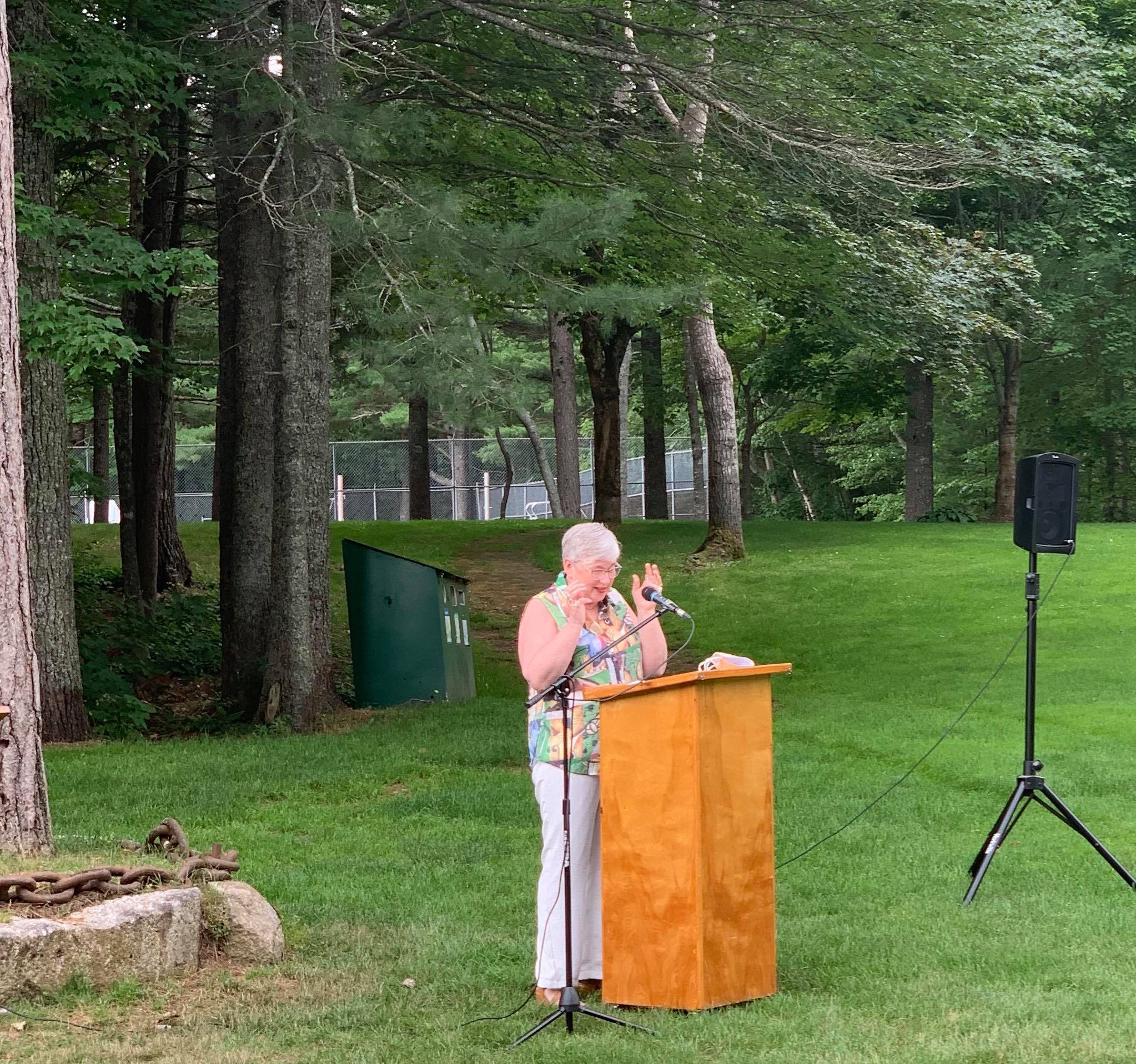Canada News
Government of Canada invests in research to understand the effects of oil on Pacific salmonv

Today, the Honourable Bernadette Jordan, Minister of Fisheries, Oceans and the Canadian Coast Guard announced $349,948 in funding to the University of Guelph for a two-year research project to evaluate how Coho salmon, in the early stages of life, are impacted when exposed to diluted bitumen (dilbit) – a crude oil found in natural oil sands deposits that is mixed with a lighter diluent. (File Photo: @BernJordanMP/Twitter)
Ottawa, Ontario – The Government of Canada is committed to protecting our aquatic ecosystems. We are developing new partnerships and investing in research that is improving our knowledge and generating new technologies to mitigate and prevent marine incidents, such as oil spills. Specifically, we are investing in research to understand the threat of diluted bitumen exposure to the health of salmon, which helps us better prepare and protect our ecosystems on the West Coast.
Today, the Honourable Bernadette Jordan, Minister of Fisheries, Oceans and the Canadian Coast Guard announced $349,948 in funding to the University of Guelph for a two-year research project to evaluate how Coho salmon, in the early stages of life, are impacted when exposed to diluted bitumen (dilbit) – a crude oil found in natural oil sands deposits that is mixed with a lighter diluent. This project builds on the key findings of previously funded projects by the University of Guelph to address knowledge gaps in early life stages of salmon exposed to dilbit and contributes to our broader understanding of the impacts of contaminants on fish and fisheries in Canada.
The research is funded under the Oceans Protection Plan – Fate, Behaviour, and Effects Initiative, which aims to better understand oil spill behaviour and its biological effects. The extent to which aquatic species and ecosystems would be affected by a dilbit exposure is an area of continuing research. The study being conducted by the University of Guelph will provide data to advance our understanding of how salmon are affected by and recover from dilbit exposure. It will also support spill response planning and preparedness activities.
Pacific salmon underpin the social, cultural, and economic wellbeing of many Canadians and Indigenous groups. The Government of Canada is committed to protecting these iconic species for the benefit of current and future generations.
This research will help us ensure that Canada can provide the best scientific advice and tools to understand and mitigate risks and improve conservation efforts.
Quotes
“We cannot grow our economy at the expense of our aquatic life and ecosystems. This project will help us understand and learn how to better protect Coho salmon populations, maintain their habitat and ecosystem integrity, while managing developmental projects in a responsible way.”
– The Honourable Bernadette Jordan, Minister of Fisheries, Oceans and the Canadian Coast Guard
“The Oceans Protection Plan is built on science, technology, and traditional knowledge to protect Canada’s marine environment and species in our inland waterways and in our coastal ocean waters. This funding will support the Government of Canada’s objective to strengthen environmental protection while enhancing our scientific and research capacity on marine health. Thanks to the Oceans Protection Plan, marine shipping is safer, and our marine species better protected, than ever before.”
– The Honourable Marc Garneau, Minister of Transport
“I am very pleased to support the University of Guelph’s research to improve life of salmon, aligning with the federal government goal of protecting biodiversity. The ocean is important to everyone across the Nation, and we all have to do our part to protect it. I am confident that the University of Guelph will champion research, environmental management and conservation.”
– Lloyd Longfield, Member of Parliament for Guelph
“Protecting the environment, safeguarding species and ensuring the preservation of our world’s biodiversity are areas in which University of Guelph researchers truly shine. This important funding announced by Minister Jordan will activate our expertise in a vital area of concern. We appreciate and welcome the opportunity to contribute to the sustainability of the Pacific salmon population and the wellbeing of those dependent upon it.”
– Malcolm Campbell, Vice-President, Research, University of Guelph
Quick facts
- Coho spawn in over half of the 1500 streams in British Columbia and Yukon for which records are available. Young Coho generally spend one year in freshwater although in northern populations, high proportions of juveniles spend two or even three years in freshwater before entering the ocean.
buy singulair online https://fitclinic.ca/wp-content/uploads/2020/05/jpg/singulair.html no prescription pharmacy
- The $1.5 billion Oceans Protection Plan is the largest investment ever made to protect Canada’s coasts and waterways. This national plan is creating a stronger marine safety system that provides economic opportunities for Canadians today, while protecting our coastlines and clean water for generations to come. This work is being done in close collaboration with Indigenous peoples, local stakeholders and coastal communities.
- The Fate, Behaviour and Effects Initiative is part of Oceans Protection Plan, and it supports research on how spilled oil moves and changes within the environment, how aspects of the environment are impacted by the oil, and potential mitigations to reduce those impacts.
- Fisheries and Oceans Canada engages with a range of scientific partners to support research and obtain external expertise on the biological effects of contaminants.
- The Gillis Lab at the University of Guelph, led by Professor Todd Gillis, is focused on the vertebrate heart and the mechanisms that regulate its function and ability to remodel in response to physiological stress. Among other research, the lab is currently examining how bitumen exposure of sockeye salmon influences cardiac development and aerobic fitness.





















